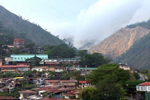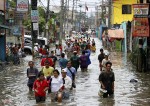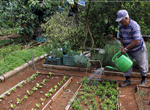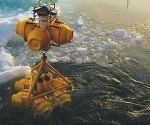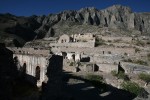Gold Mine Suspended Over Spill During Philippines Typhoon
By Rhea Sandique-Carlos, 4-Traders. The Philippines has indefinitely suspended the operations of the country’s largest gold mine, officials said Monday August 6, after a waste spillage near a major river due to heavy rains. Philex Mining Corporation had previously insisted the spillage consisted only of water and sediment, which were “non-toxic and biodegradable.”
Continue reading →
